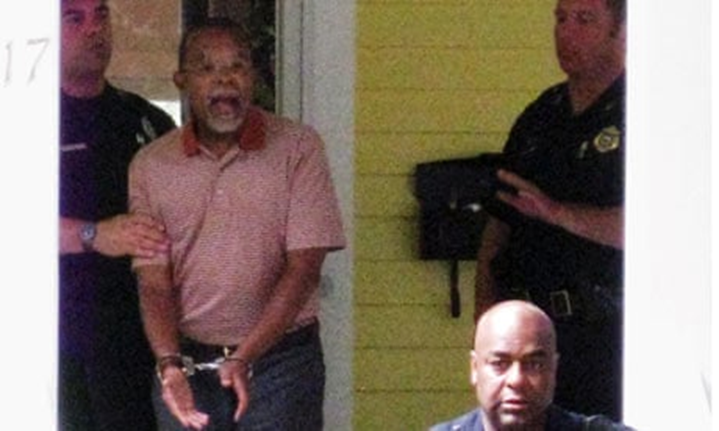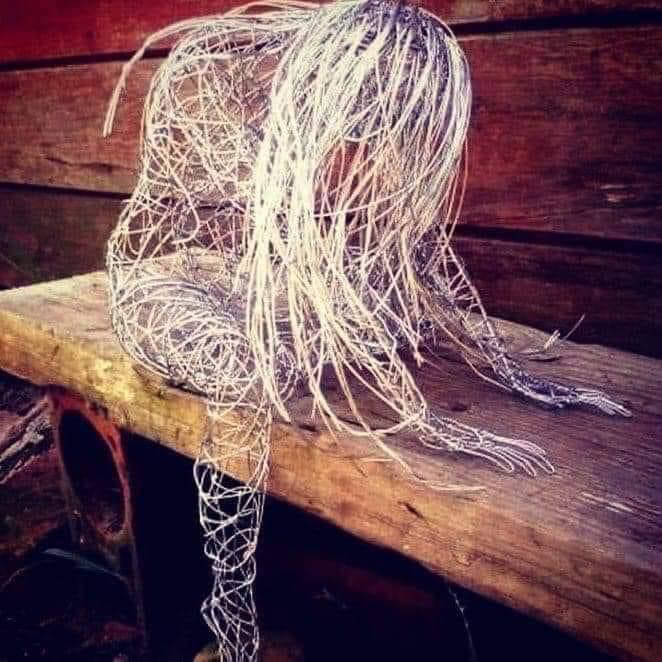The reality of being a Black Man in America
Typologies, stereotypes, tropes, internalized racism, victimization, racial trauma -pick the word that best suits you. But regardless of the words you choose, they neither fit nor do they adequately describe what it entails to be Black in America. While normalization of these terms has resulted in static representations and niches such as the Black Entertainer, Athlete, Welfare Queen, and Criminal/Thug -none of these attest to the resilience, determination, drive, and realities that Blacks have created. But what they do accomplish is to preserve and protect the White racial impression of what it means to be Black. Further, to maintain these illusions, stiff penalties are rendered to Blacks who dare to step out of line. The repeated lynching of thousands of Blacks was essentially retribution for those who dared to step across the racial line and dare to be different.
The internalization of these stereotypes has obvious outcomes, as we have seen. Still, the less obvious reactions to these stereotypes by police and educators, judges, politicians, and everyday citizens have led to repeated tragedies. George Floyd and Michael Brown joined over 200 mostly Black men killed by police since 2020. (Raham 2021) Unarmed Black people, in general, and Black men are more than three times more likely to be fatally shot by police. (Lett, Asabor, Corbin, and Boatright, 2020) Half of the 250 kids expelled daily from preschool are Black boys. (Novak 2023) Black boys lost an average of 132, and Black girls lost 77 days per 100 students enrolled, compared to just 21 days for their white peers due to out-of-school suspensions. (Camera 2020) Not only are black Men more likely to be criminalized, but they are also more likely to serve 19.1 percent longer than their white counterparts for similar crimes. (King 2017)
Unfortunately, even during these challenges, Black males have been subject to over-policing. When Jack Johnson dared to not only defeat the Great White Hope but then to marry a White woman, he was quickly arrested, condemned, and even arrested for "White slavery" (carrying a woman, White, across state lines for sex. The fact that it was his wife did not seem to matter at the time. Or consider the case of Trevon Martin, who was killed because he was wearing a hoodie and was presumed to be a gang member. And the irony is that George Zimmerman was acquitted as the all-White jury agreed with this assessment.
One of the strangest cases of misidentification was
witnessed when Harvard Professor Henry Louis Gates was arrested as he attempted
to enter his Cambridge, Massachusetts, home by local police officers. (Pilkington
2009)
Even having the wrong hairstyle can
cause police to overreact, as Clarence Evans learned. While playing with his
kids outside his own home, Evans was accosted and forced against his car by a
White deputy who mistook him for a suspect. Even after proving that Houston Police
had wrongly targeted him, the police officials and union "saw nothing
wrong with the encounter." (Miller
2019)
Strangely, as education and income go up, the
intersection of race and gender demonstrates that if you are White or a Black
woman, there is a reduced risk of discrimination and depression. However, the
opposite is true for Black men, who are targeted as "dangerous,
threatening, and inferior." Consequently, research demonstrates that these
conditions lead to an increased risk of depression among higher-status Black
men (Assari, Lankarani, and
Caldwell, 2018) and boys (Assari and
Caldwell, 2017)
Being wealthy, or even one of only five Black Republicans
in Congress, reports being stopped no less than seven times in one year for
doing nothing wrong but driving a new car in the wrong neighborhood. (Vega
2016)
A scary conclusion reached by
researchers reporting in the NYTimes reveals that Black boys, even from some of
the most affluent families and neighborhoods in America, still earn less in
adulthood than their white peers. More troubling is that Black boys from the
highest economic group are likelier to end up poor, while White boys from the
same tier are likelier to remain rich. (Badger,
Miller, Pearce, and Quealy, 2018)
Student demonstrators, quietly sitting at lunchroom
counters, were dragged away by angry patrons, hosed, beaten, and dragged away.
All because they stepped out of their place and tried to cross the sacred line
separating White and Black diners. (Bates
2019) Martin Luther King, jailed for
contempt of court for marching on Good Friday, would write his manifesto "Letter From
Birmingham Jail." (Brown-Nagin
2022) After sprinters Tommie Smith and John Carlos raised their fists in
protest during the 1968 Summer Games. They were immediately banned from the
U.S. Team and the Olympic Village. Death threats and jeers heralded their
return to the U.S. Four years later, this time in Munich, track athletes Wayne
Collert and Vince Matthews were punished because they "did not face the
flag" during the Olympic ceremony. They were barred from Olympic
competition because they were "Unquestionably…defiant". And in 1996,
the N.B.A. suspended Mahmoud Abdul-Rauf because he refused to stand during the
national anthem. More recently, he was barred from playing
professionally when quarterback Colin Kaepernick refused to stand for the
anthem at N.F.L. games. (Johnk
2017) And who can forget when Fox
News Hosts Laura Ingraham rebuked Cleveland Cavelier's LeBron James to "shut
up and dribble"? (Sullivan
2018)
Among entertainers, Paul Robeson outspoken activist
against lynching, was among the first before the House Un-American Activities
Committee in 1949 for "propagating communism in the United States." The
State Department denied Robeson a passport, and he was effectively confined to
the United States and forced to do concerts across fences. More recently, the F.B.I.,
reminiscent of the 1960 COINTELPRO, aggressively targeted and handed down stiff
criminal charges as prosecutors tried to disrupt and destroy this global
movement after the police killing of George Floyd. (A.P.
2021)
Historically, predominantly
White legislative bodies have removed black, elective officials from office,
effectively disentrancing their constituents. These statewide bodies have
punished the respective officials and denied their constituents their political
rights. These state-mandated expulsions have typically been for minor, if
not manufactured, infractions, while the penalties have been severe. In
all cases, the sentences were more related to the political stance of the Black
elective officials and not their minor offenses. The first occurrence
happened in September of September as 33 Black state legislators were expelled
from the Georgia State Assembly simply because they were Black. Similar
expulsions would occur throughout the South, as in Reconstruction, the rising
tide of black voters and elected officials were systematically disenfranchised
and expelled from office. The next major wave of expulsions would come
100 years later as the Modern Civil Rights Movement got underway. Central
Black elective officials such as Adam Clayton Powel and Julian Bond were either
legislatively expelled or denied admission to the positions to which they were
elected. Again, the real losers were the voters from their districts,
Harlem and Atlanta, who were legislatively disenfranchised. This brings
us to the present situation in Tennessee, where Republican lawmakers expelled
two Black men, Justin Jones and Justin Pearson. Though they were
reappointed within days, the trauma was real, and they still must go through a
special election. All the while, they must remain obedient or else
face another expulsion and their voters disenfranchised.
Through it all, Black men have been and continue to be
active agents in creating their masculinities. And while none of them, or us for
that matter, are perfect, we should neither vilify nor romanticize these
identities. Black masculinities continually challenge the stereotypes as they reimagine,
reproduce, and realign their identities.



Comments
Post a Comment